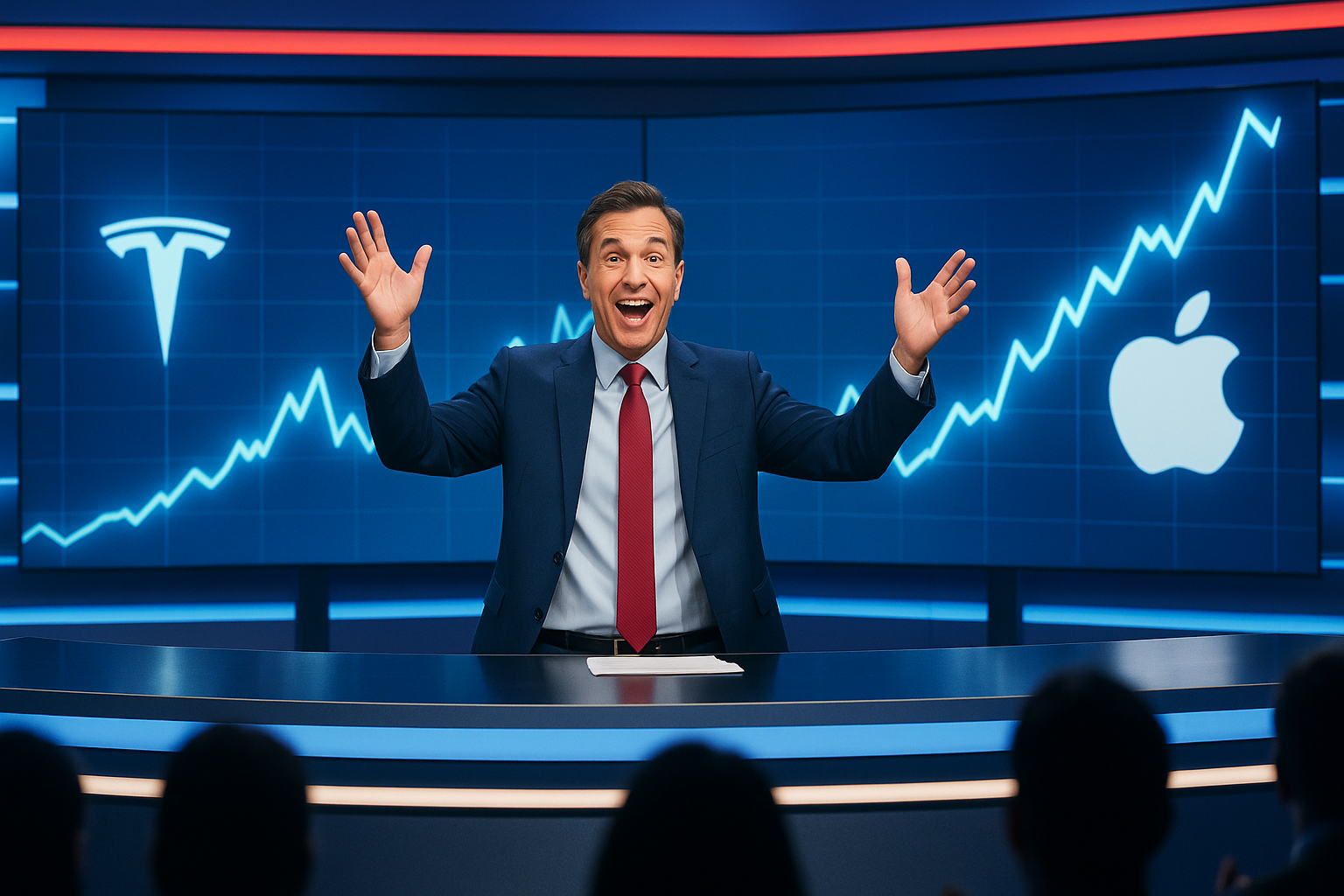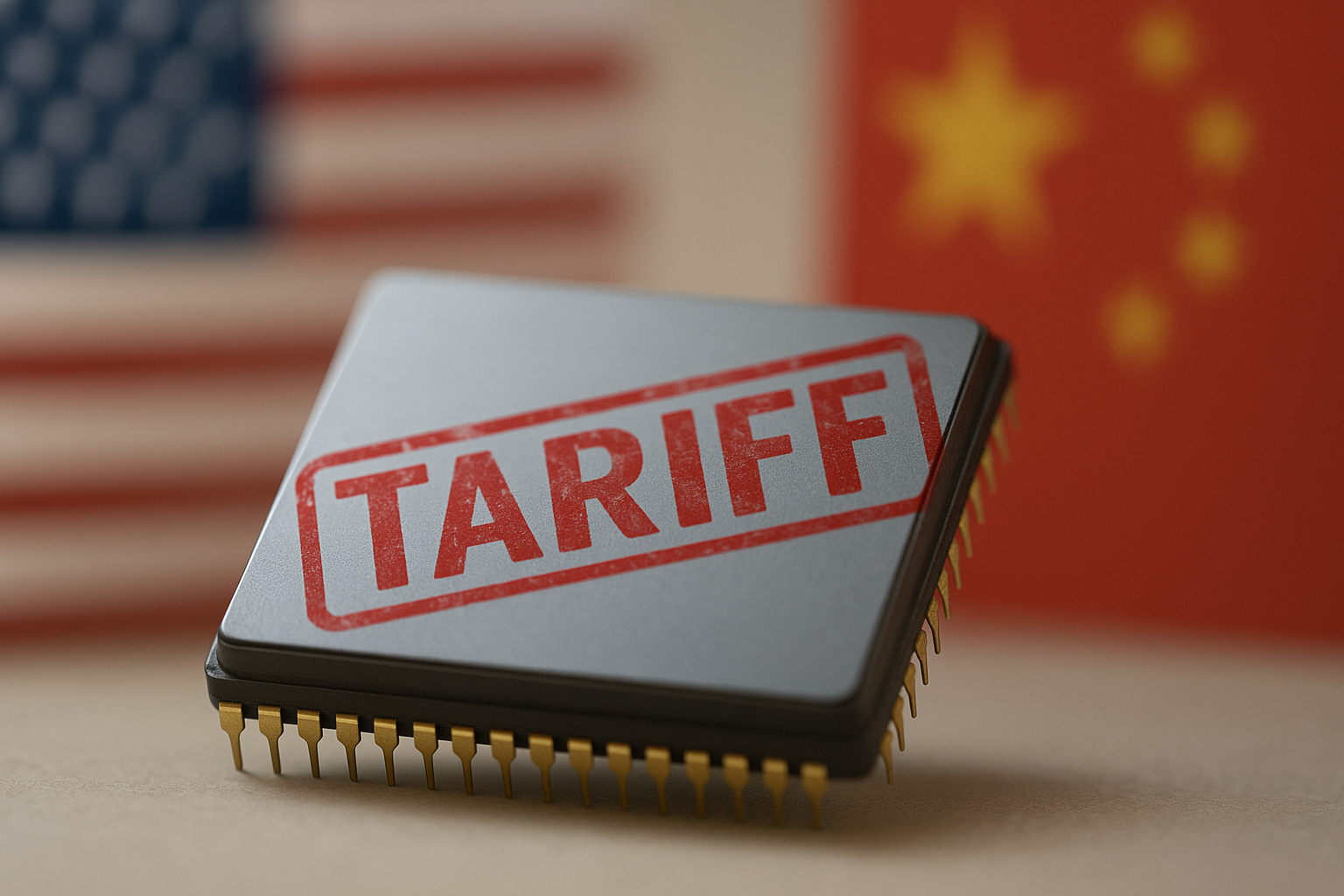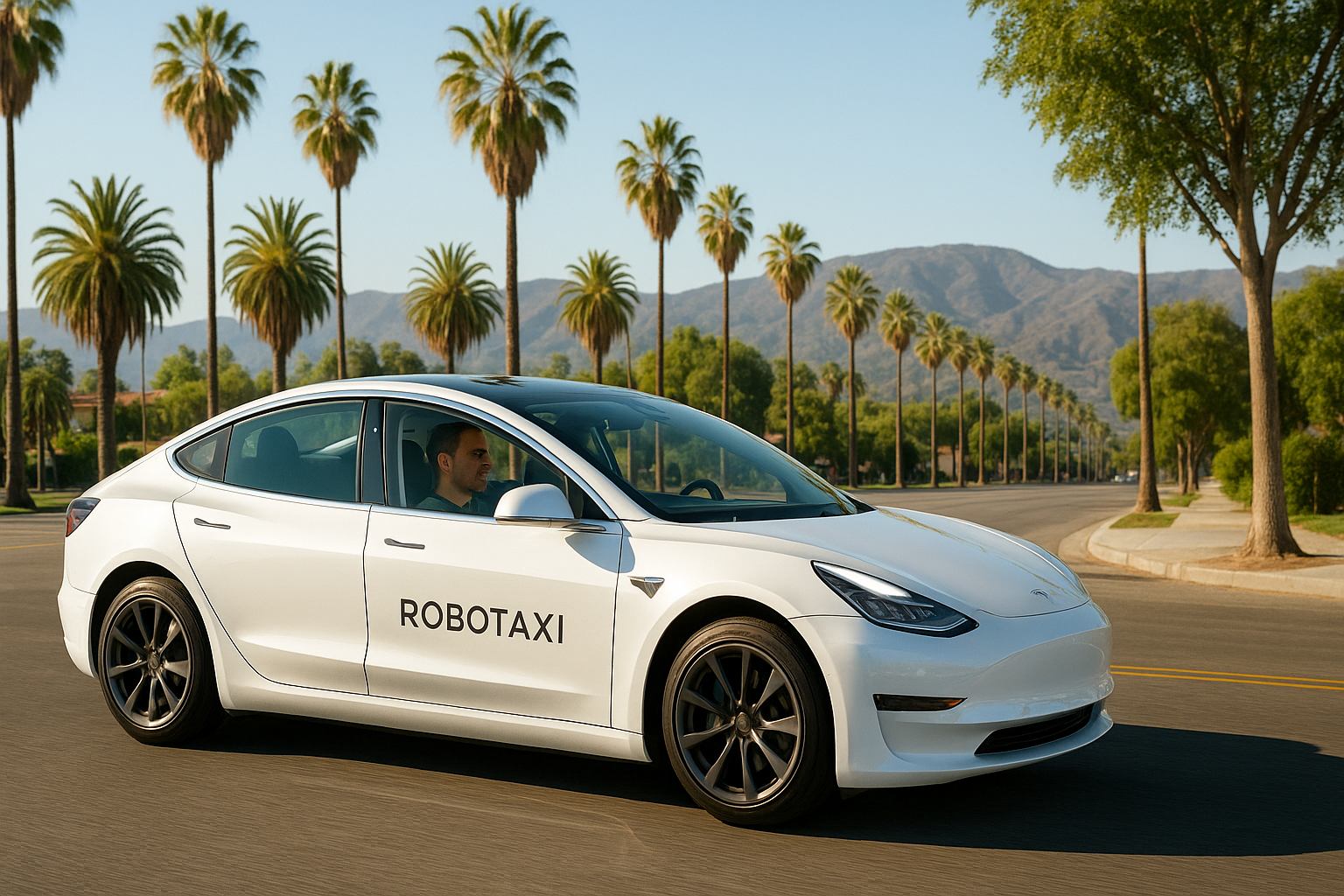I caught Jim Cramer's show last night, and let me tell you – it was quite the spectacle. The "Mad Money" host seemed to be operating at an unusual frequency, even by his own energetic standards.
There's something fascinating about watching Cramer these days. He's become financial television's equivalent of that uncle at Thanksgiving who starts making increasingly bold proclamations as the evening wears on. Last night's performance featured the classic Cramer cocktail: verbal stumbles, sky-high optimism, and unabashed tech evangelism that would make a Silicon Valley VC blush.
The Tesla and Apple segments were particularly instructive. Cramer essentially canonized both companies, declaring Tesla "a technology company with an amazing Optimus robot product" and crowning Apple the future king of artificial intelligence. Never mind that Tesla's humanoid robot has yet to prove commercial viability, or that Apple is playing catch-up in the AI race after years of prioritizing privacy over data collection.
This highlights a persistent pattern in financial media – the conflation of genuine analysis with enthusiastic boosterism. The question isn't whether Cramer has "personal issues" or is "drunk on his own nonsense" (as one viewer colorfully suggested to me). Rather, it's about understanding the peculiar ecosystem in which financial entertainment operates.
The Cramer Model, if you will, works something like this:
- Take legitimate financial insights (Cramer is, after all, a former hedge fund manager with genuine market knowledge)
- Amplify them through a theatrical personality that transforms analysis into entertainment
- Add a heavy dose of conviction that leaves little room for uncertainty
- Serve to an audience that craves both guidance and spectacle
The result is a curious information product that exists somewhere between financial journalism and performance art. This isn't necessarily a problem – most sophisticated investors understand they're watching financial theater rather than receiving fiduciary advice. The trouble comes when viewers mistake the map for the territory.
Look, Cramer's bullishness on tech giants isn't completely unfounded. Tesla has defied skeptics repeatedly, and Apple's ecosystem advantages could eventually translate to AI success. But the unqualified enthusiasm – the suggestion that these stocks are "gifts to all mankind" – flattens the complex reality into a simplistic narrative.
What's particularly interesting is how Cramer's approach mirrors broader market dynamics. In bull markets, nuance and skepticism often get drowned out by the thundering herd of optimism. The show becomes a microcosm of market psychology – exuberance without the rational part.
Is it time for CNBC to "cut him loose," as some suggest? I doubt it. Cramer remains compelling television, and financial networks aren't exactly in the business of moderating enthusiasm during bull markets. The relationship between financial media and viewers involves a certain implied understanding: this is information as entertainment, not a roadmap for your retirement account.
The more interesting question is whether the Cramer phenomenon reveals something deeper about our relationship with financial information. In a world of endless data and complexity, perhaps what many crave isn't nuanced analysis but confidence – even when that confidence comes in a package that occasionally slurs its words and makes proclamations that would make even a growth stock analyst raise an eyebrow.
Anyway, I suppose the real question isn't whether Cramer should be on air, but whether viewers are consuming his show with the appropriate mixture of interest and skepticism. The finance world needs its characters and provocateurs – just as long as we remember that entertainment and investment advice are different products entirely.
I mean, in the end, a little skepticism is the best hedge against enthusiasm – both in markets and in financial television.




